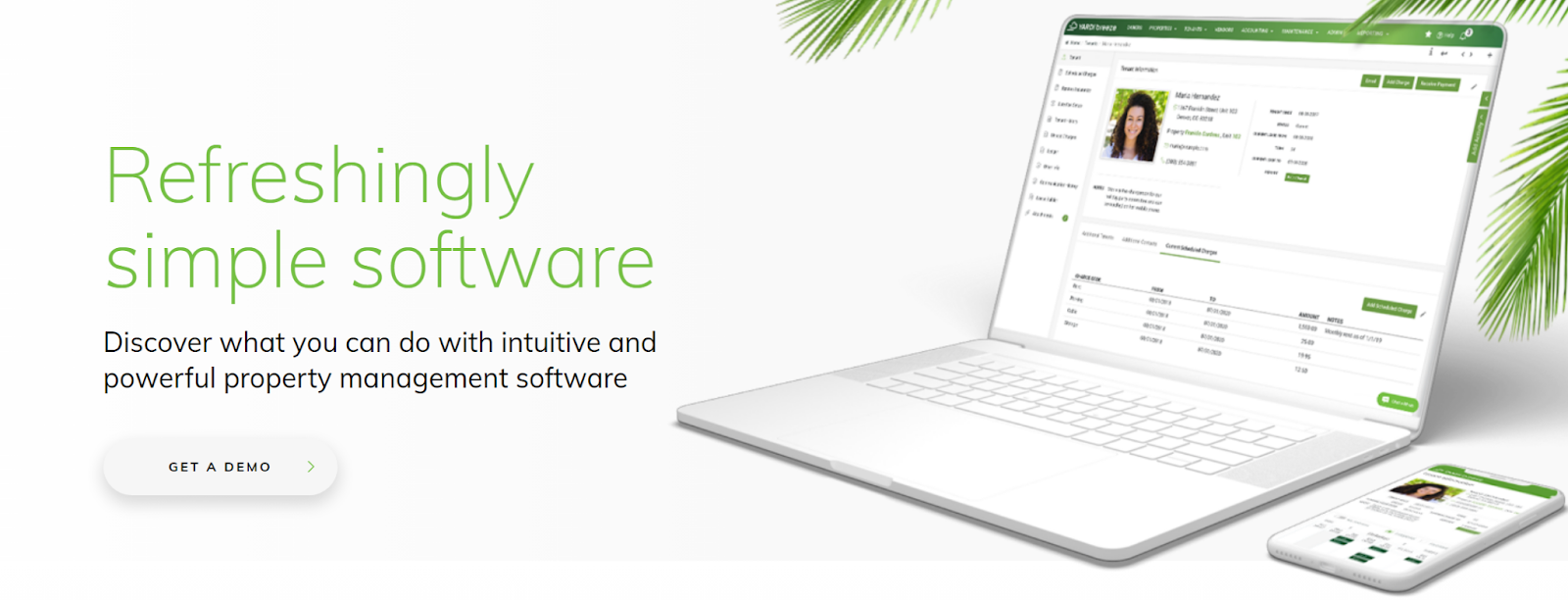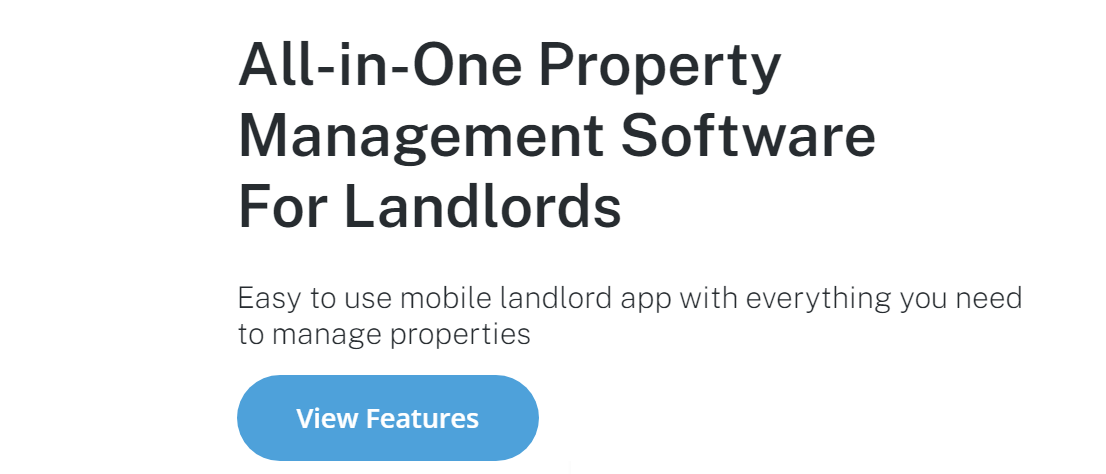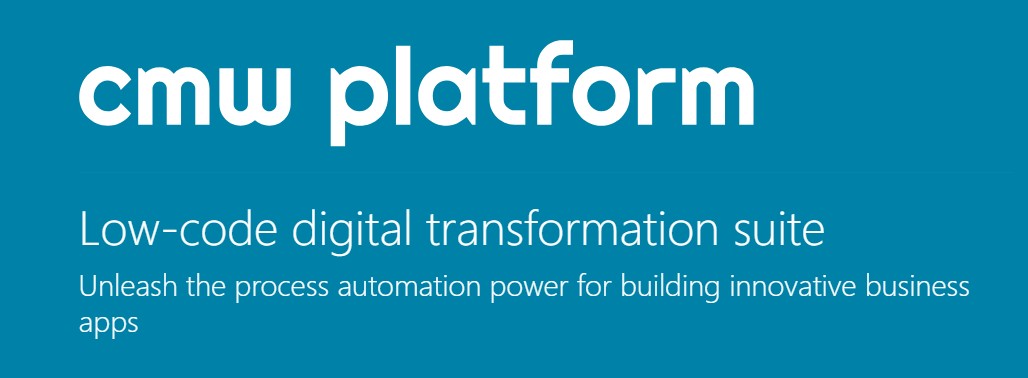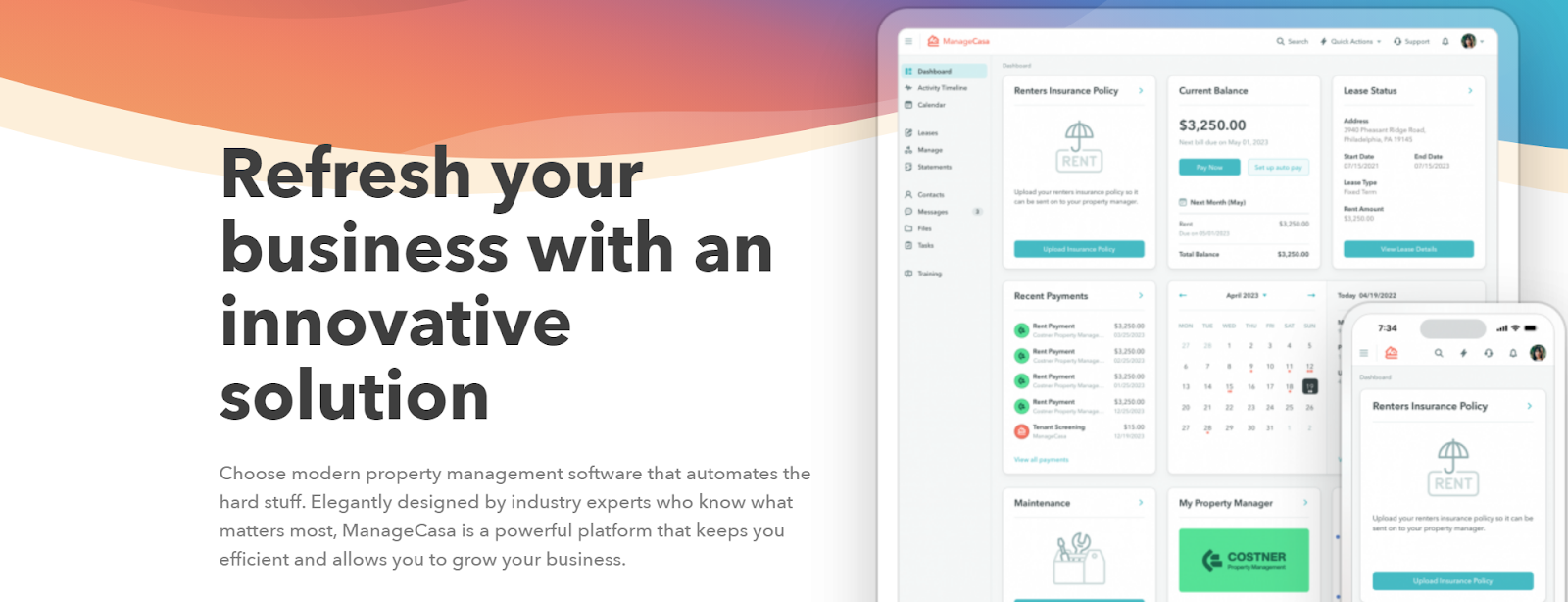Get work done right, and right-on-time with our industry leading BPM platform.
18 Top Lease Management Software Solutions for 2024
Are you tired of playing hide-and-seek with your lease agreements, rent payments, and maintenance requests in a never-ending stack of paperwork?
It’s time to level up your property management game!
In this article, we’re diving into the world of lease management software, where technology meets real estate in a fun and fabulous way.
Get ready to explore the top 18 solutions that will turn your lease management journey into a thrilling adventure.
Let’s get this digital property party started!
Process Street

Process Street can serve as efficient lease management software by streamlining tasks related to lease agreements. Users can create customizable checklists and workflows to manage lease renewals, inspections, rent collection, and maintenance requests. Automation and collaboration features enhance organization and reduce administrative burdens, making it an ideal tool for property managers and landlords.
Key features:
- Checklist and workflow creation: Build custom checklists and workflows for various processes.
- Task automation: Automate repetitive tasks and actions within processes.
- Collaboration: Collaborate with team members in real time.
- Templates: Access a library of pre-designed lease process templates.
- Conditional logic: Create dynamic processes based on user inputs.
- Form fields: Collect and store data within checklists.
- Integration: Integrate with popular apps like Zapier and Salesforce.
- Reporting and analytics: Generate reports and track process performance.
- Permissions and access control: Control who can view and edit processes.
- Role assignments: Assign responsibilities and roles to team members.
Pros:
- Intuitive interface for easy process creation and management.
- Highly customizable checklists and workflows to suit your needs.
- Generates reports and tracks process performance.
- Strong data security and access control features.
- Access and use the platform on mobile devices.
- Quickly and easily generates workflows using AI.
Cons:
- There is no free plan.
Buildium

Buildium is a property management software that simplifies and automates various real estate management tasks. It offers features such as rent collection, tenant screening, maintenance tracking, and financial reporting. With its user-friendly interface, it’s a popular choice for property managers, landlords, and homeowner associations, streamlining property management processes.
Key features:
- Tenant screening: Screening prospective tenants and background checks.
- Rent collection: Online rent payments and automated reminders.
- Maintenance requests: Logging and tracking maintenance issues.
- Financial management: Accounting, budgeting, and reporting.
- Vendor management: Managing vendor contracts and payments.
- Electronic signatures: Digital signatures for lease agreements and documents.
Pros:
- Streamlines rent collection with online payment options.
- Enhances communication and transparency between landlords, tenants, and property owners.
- Efficient accounting and financial reporting capabilities
- Simplifies maintenance request management.
Cons:
- Can be expensive, especially for smaller property management businesses.
- New users may require time to fully understand and utilize all features.
Yardi Breeze

Yardi Breeze is a cloud-based property management software designed for small to mid-sized property management companies. It offers features such as accounting, leasing, marketing, and maintenance management. With its user-friendly interface and scalability, Yardi Breeze simplifies property management tasks and helps businesses efficiently manage their real estate portfolios.
Key features:
- Accounting: Financial management, reporting, and budgeting.
- Leasing and marketing: Streamlining the leasing process and marketing vacancies.
- Maintenance management: Tracking and managing maintenance requests and work orders.
- Online payments: Facilitating online rent collection and payments.
- Tenant and owner portals: Providing portals for tenants and property owners.
Pros:
- As a cloud-based solution, it provides accessibility from anywhere with an internet connection.
- Designed for small to mid-sized property management companies, it’s often cost-effective.
- Can accommodate growth as businesses expand their real estate portfolios.
- Provides good customer support and training resources.
Cons:
- May lack some advanced features required by larger property management companies.
- Limited flexibility in terms of customization compared to other platforms.
Rentec Direct

Rentec Direct is a property management software and tenant screening solution tailored for landlords, property managers, and associations. It offers features such as online rent collection, accounting, tenant screening, and maintenance tracking. Its user-friendly platform simplifies property management tasks, making it a valuable tool for property professionals of all sizes.
Key features:
- Reporting and analytics: Customizable reports for property performance insights.
- Compliance tools: Aids in compliance with legal and financial regulations.
- Document management: Securely stores property-related documents.
- Financial management: Accounting, reporting, and budgeting tools.
- Maintenance requests: Manages and tracks maintenance issues.
Pros:
- Offers an intuitive and easy-to-navigate interface.
- Competitive pricing for landlords and property managers.
- Comprehensive tenant screening tools for better tenant selection.
- Simplifies rent collection and payment processing.
Cons:
- May not be suitable for larger property management companies.
- Limited flexibility for highly customized workflows.
TurboTenant

TurboTenant is an online property management platform designed to streamline the rental process for landlords and property managers. It offers tools for listing properties, screening applicants, handling maintenance requests, and collecting rent. With a user-friendly interface, it simplifies the rental management process and helps users find quality tenants efficiently.
Key features:
- Property listing: Create and promote property listings across various platforms.
- Online applications: Accept and process rental applications electronically.
- Lease agreement templates: Access pre-made lease agreement templates.
- Property advertising: Promote listings on popular rental websites.
- Rental market analysis: Analyze local rental market trends and pricing.
Pros:
- Provides a free plan with essential features for smaller landlords.
- Streamlines the application process for both tenants and landlords.
- Simplifies the process of creating and promoting property listings.
- Comprehensive background and credit check options for tenant selection.
Cons:
- Offers limited customization options compared to more robust solutions.
- May not be suitable for property managers with a large number of units or properties.
Avail

Avail is software made for independent landlords and DIY property managers. It offers a range of tools to simplify rental property management, including online listing creation, tenant screening, rent collection, and maintenance tracking. Avail’s user-friendly platform helps small-scale landlords efficiently manage their properties and streamline their rental processes.
Key features:
- Listing creation: Easily create and publish property listings.
- Tenant screening: Conduct background and credit checks on prospective tenants.
- Rent collection: Streamline rent payments and transactions online.
- Lease management: Generate customizable lease agreements and manage renewals.
- Maintenance requests: Manage and track tenant maintenance requests.
Pros:
- Easy-to-use tools for creating and publishing property listings.
- Offers a straightforward and intuitive platform, suitable for DIY landlords.
- Competitive pricing with a free plan and low-cost paid options.
- Comprehensive background and credit checks for tenant selection.
Cons:
- Limited integration options with other software or systems.
- More suitable for small-scale landlords rather than larger property management firms.
DoorLoop

DoorLoop is a comprehensive property management software tailored for property managers, landlords, and real estate professionals. It offers tools for property and tenant management, accounting, maintenance tracking, and more. DoorLoop’s user-friendly interface and automation features simplify property-related tasks and enhance efficiency in managing residential and commercial properties.
Key features:
- Maintenance management: Manages maintenance requests and work orders.
- Accounting and financial reporting: Efficient accounting and customizable financial reporting.
- Lease management: Monitors lease agreements, renewals, and terminations.
- Document management: Securely stores and organizes property-related documents.
- Vendor management: Manages vendor contracts, payments, and work orders.
Pros:
- Robust accounting and financial reporting capabilities.
- Offers a wide range of property management tools in one platform.
- Allows for tailored workflows and processes.
- Access to customer support and training resources.
Cons:
- Cost may be higher for smaller property management businesses.
- The free trial doesn’t provide a complete experience with all features.
LeaseAccelerator

LeaseAccelerator is a lease accounting and management software designed to help organizations comply with lease accounting standards such as ASC 842 and IFRS 16. It provides tools for lease data collection, accounting automation, financial reporting, and portfolio management. LeaseAccelerator simplifies the complex task of lease management and ensures regulatory compliance.
Key features:
- Lease data collection: Collect and centralize lease information.
- Accounting automation: Automates lease accounting calculations and journal entries.
- Lease renewal management: Tracks lease renewal and negotiation processes.
- Audit trail: Provides a comprehensive audit history of lease data changes.
- Lease abstracts: Extracts key lease data for analysis.
Pros:
- IFRS 16 and ASC 842 compliant.
- Offers insights into lease portfolio performance.
- Gathers and organizes lease data in one place for easy access.
- Streamlines complex lease accounting calculations and reporting through automation.
Cons:
- The software can be complex and may require training.
- Requires ongoing maintenance to keep lease data accurate and up-to-date.
RentRedi

RentRedi is a property management tool focusing on streamlining rental property management processes. It offers features for listing properties, collecting rent online, and managing maintenance requests. With its mobile app, RentRedi aims to make property management more accessible and efficient for users in the residential real estate sector.
Key features:
- Property listing: Easily create and promote property listings.
- Online rent collection: Simplifies rent payments and transactions online.
- Tenant screening: Conduct comprehensive background and credit checks.
- Maintenance requests: Streamlines the management of tenant maintenance requests.
Pros:
- Offers online rent collection.
- Efficient system for managing and tracking maintenance issues.
- Simple to set up and use.
Cons:
- Has limited features and customization.
- More suitable for small-scale landlords rather than larger property management firms.
LeaseQuery

LeaseQuery is a lease accounting software designed to help organizations navigate complex lease accounting standards like ASC 842 and IFRS 16. It offers features for lease data management, calculations, compliance, and financial reporting. LeaseQuery streamlines the accounting process, ensuring accurate lease data and regulatory compliance for businesses of all sizes.
Key features:
- Lease modifications: Tracks and manages lease changes and amendments.
- Lease documentation: Stores lease agreements and associated documents.
- Lease events management: Monitors critical lease events and milestones.
- Lease data management: Centralized storage and management of lease information.
- Lease accounting calculations: Automated calculations for lease expenses and liabilities.
Pros:
- Helps organizations adhere to lease accounting standards (IFRS 16, ASC 842).
- Generates accurate lease-related financial reports and disclosures.
- Monitors and manages lease changes and amendments to leases.
- Offers integration with ERP and other financial systems.
Cons:
- The software can be complex and may require training.
- Requires ongoing maintenance to keep lease data accurate and up-to-date.
Innago

Innago is a cloud-based property management software solution. It provides tools for lease management, tenant communication, rent collection, and maintenance tracking. Innago offers a user-friendly platform to simplify property management tasks, making it an ideal choice for individuals and small-scale property management professionals.
Key features:
- Tenant communication: Facilitates communication with tenants via the platform.
- Maintenance requests: Manages and tracks tenant maintenance requests.
- Lease renewals: Monitors and automates lease renewal processes.
- Document management: Securely stores and organizes property-related documents.
- Payment tracking: Tracks payments and financial transactions.
Pros:
- Offers an intuitive and easy-to-navigate platform for landlords and property managers.
- Competitive pricing options for property management tools.
- Simplifies rent payment processing.
- Enhances communication with tenants via the platform.
Cons:
- May lack some advanced features needed by larger property management companies.
- Offers limited customization options compared to more robust solutions.
Leasecake

Leasecake is a lease administration software designed to simplify and automate the process of managing commercial real estate leases. It offers features for lease tracking, critical date reminders, document storage, and financial analysis. Leasecake streamlines lease administration, making it an invaluable tool for property owners, managers, and tenants in the commercial real estate industry.
Key features:
- Critical date reminders: Automated alerts for important lease events and deadlines.
- Lease analysis: Financial analysis and reporting for lease-related expenses and performance.
- Compliance management: Ensures adherence to lease terms and regulatory requirements.
- Notifications: Sends notifications for rent payments and lease renewals.
- Collaboration: Enhances communication and collaboration among stakeholders.
Pros:
- Helps in preventing missed deadlines and key lease events.
- Allows users to access lease information on mobile devices.
- Provides financial analysis and reporting for lease expenses and performance.
- Ensures adherence to lease terms and regulatory requirements.
Cons:
- Pricing may not be budget-friendly for some users.
- Some users may require time to fully understand and utilize all features.
Smovin

Smovin is a property management and booking software tailored for vacation rental property owners and managers. It offers tools for managing bookings, property listings, pricing, and guest communication. Smovin streamlines the vacation rental management process, ensuring efficient operations and enhanced guest experiences in the short-term rental industry.
Key features:
- Booking management: Efficiently manage bookings and reservations.
- Pricing management: Set and adjust pricing for different seasons and events.
- Channel management: Publish listings on multiple online booking platforms.
- Guest communication: Facilitate communication with guests pre and post-stay.
- Online payments: Collect payments and security deposits online.
- Cleaning and maintenance: Coordinate cleaning and maintenance tasks.
Pros:
- Tailored for vacation rental property owners and managers.
- Publish listings on multiple online booking platforms.
- Facilitates communication with guests pre and post-stay.
- Collect payments and security deposits online.
Cons:
- Integration with other software or systems is limited.
- Pricing may vary and not be budget-friendly for some users.
Lucernex

Lucernex is a cloud-based lease administration and accounting software that simplifies lease management for commercial real estate professionals. It offers tools for lease data management, financial accounting, reporting, and compliance with lease accounting standards. Lucernex streamlines complex lease processes, ensuring accuracy, transparency, and compliance in the commercial real estate industry.
Key features:
- Lease data management: Centralized storage and management of lease agreements and related data.
- Financial accounting: Automates lease accounting calculations and financial reporting.
- Lease compliance: Ensures adherence to lease accounting standards (IFRS 16, ASC 842).
- Critical date alerts: Provides automated reminders for important lease events and deadlines.
- Collaboration: Enhances communication and collaboration among stakeholders.
Pros:
- Securely stores lease agreements and related documents.
- Streamlines lease data storage and management.
- Access lease information on mobile devices.
Cons:
- Implementation and subscription costs may be high for some organizations.
- It can be difficult to set up integrations.
ManageGo

ManageGo is a property management platform offering modern solutions for landlords and property managers. It provides features for online rent collection, maintenance requests, lease management, and financial reporting. ManageGo simplifies property management tasks with its user-friendly interface, catering to residential and commercial real estate professionals, enhancing their operational efficiency.
Key features:
- Online rent collection: Simplifies rent payments and transactions through various payment methods.
- Tenant portal: Provides tenants with a portal for rent payments and communication.
- Maintenance requests: Streamlines tenant maintenance issue reporting and tracking.
- Lease management: Manages lease agreements and renewals.
- Document management: Stores and organizes property-related documents.
Pros:
- Generates insights into property financial performance.
- Provides a mobile app for on-the-go property management.
- Simplifies lease agreement management and renewals.
Cons:
- Some users may find reporting capabilities limited.
- More suitable for small to mid-sized property management operations.
PayProp

PayProp is a cloud-based property management software designed to streamline financial transactions and accounting for property managers, landlords, and letting agents. It offers features for rent collection, automated payments, reporting, and compliance. PayProp simplifies financial management in the property industry, ensuring accuracy and efficiency in financial transactions and reporting.
Key features:
- Rent collection: Streamlines rent collection and payment processing.
- Automated payments: Automates payment distribution to landlords and contractors.
- Financial reporting: Generates detailed financial reports and statements.
- Bank reconciliation: Automates bank statement reconciliation.
Pros:
- Enhances communication and transparency.
- Simplifies bank statement reconciliation.
- Ensures adherence to financial and regulatory standards.
Cons:
- Customer support quality may vary.
- Integration with other software systems can be complex.
Stessa

Stessa is a cloud-based property management software designed for real estate investors and rental property owners. It offers features for income and expense tracking, financial reporting, and portfolio analysis. Stessa simplifies the financial management of rental properties, providing valuable insights and streamlining investment decisions in the real estate industry.
Key features:
- Income and expense tracking: Easily record and categorize property-related financial transactions.
- Financial reporting: Generates comprehensive income statements and balance sheets.
- Portfolio analytics: Provides insights into property performance and investment portfolio analysis.
- Tax preparation: Simplifies tax reporting and documentation for property investments.
- Automated data import: Integrates with financial institutions for automatic data import.
Pros:
- Securely stores and organizes property-related documents.
- Monitors lease agreements and renewal dates.
- Makes financial documentation easy.
- Provides useful analytics.
Cons:
- Primarily focused on financial tracking and reporting, not suitable for operational property management.
ManageCasa

ManageCasa is a property management software designed to simplify the tasks of property managers, landlords, and tenants. It offers features for rent collection, maintenance requests, accounting, lease management, and tenant communication. ManageCasa streamlines property management processes, enhancing efficiency, transparency, and communication for real estate professionals in the residential rental sector.
Key features:
- Rent collection: Streamlines rent payments and transactions.
- Tenant portal: Provides a portal for tenants to make payments and communicate.
- Maintenance requests: Manages and tracks tenant maintenance issues.
- Accounting: Handles property-related financial transactions and reporting.
- Lease management: Manages lease agreements, renewals, and terminations.
Pros:
- Provides insights into property financial performance.
- Connects with other property management and financial software.
- Organizes and securely stores property-related documents.
Cons:
- May lack some advanced features needed by larger property management companies.
What is lease management software?
Lease management software is a specialized tool used by businesses to efficiently manage their lease agreements and related processes. It provides a comprehensive solution that streamlines the entire leasing process, from lease origination to expiration.
One of the key features of lease management software is its ability to track critical dates related to lease terms and obligations. This includes lease start and end dates, rent payments, and other important milestones. By automating this process, companies can avoid missing key deadlines and ensure compliance with lease agreements and lease accounting standards.
In addition, lease management software enables businesses to effectively manage their lease portfolio. It centralizes all lease-related information, including lease documents, lease financials, and lease abstracts. This allows users to access and review their entire lease portfolio easily, making it simpler to identify lease renewal opportunities, track lease options, and negotiate lease terms.
To further enhance operational efficiency, lease management software offers various property management tools. It allows rental property owners and real estate professionals to manage all aspects of their properties, including square footage tracking, maintenance schedules, and tenant information. Additionally, it provides custom and financial reports, enabling users to generate insightful reports for real estate portfolio management and financial reporting purposes.
Cloud-based lease management software solutions are becoming increasingly popular due to their flexibility, accessibility, and ease of use. By leveraging the power of the cloud, businesses can access their lease data from anywhere, at any time, using any device. This makes collaboration between lease managers and stakeholders more efficient and allows for real-time updates and notifications.
Benefits of lease management software
Lease management software provides numerous benefits to businesses and organizations that deal with lease agreements and property management. Here are some key advantages:
1. Streamlined lease tracking: Lease management software automates the tracking of critical dates, such as lease start and end dates, expiration dates, and rent payments. This helps businesses avoid missing important deadlines and ensures compliance with lease agreements and lease accounting standards.
2. Centralized lease portfolio management: The software centralizes all lease-related information, including documents, financials, and abstracts. This makes it easy for users to access and review their entire lease portfolio, identify renewal opportunities, track lease options, and negotiate lease terms.
3. Operational efficiency: Lease management software offers property management tools that allow users to efficiently manage properties. This includes tracking square footage, scheduling maintenance, and managing tenant information. Additionally, the software provides custom and financial reports for real estate portfolio management and financial reporting purposes.
4. Cloud-based accessibility: Many lease management software solutions are cloud-based, enabling users to access lease data from anywhere, at any time, using any device. This enhances collaboration between lease managers and stakeholders, allows for real-time updates and notifications, and provides flexibility and ease of use.
How much does lease management cost?
When considering implementing lease management software, one of the primary concerns for businesses is the cost. The cost of lease management software can vary depending on several factors such as the size of the organization, the number of leases to be managed, and the specific features and functionality required.
Most lease management software solutions offer tiered pricing plans based on the number of users or leases. For small businesses or organizations with a limited number of leases, there are often affordable entry-level plans available. These plans usually start at a few hundred dollars per month or a flat annual fee.
For larger organizations with more complex lease portfolios and a higher volume of leases, the cost of lease management software can be higher. These plans may include additional features and functionality to accommodate the specific needs of enterprise-level businesses. The pricing for these plans is typically custom, and businesses can contact the software provider for a quote based on their requirements.
It’s important to note that while lease management software may require an upfront investment, the benefits it provides, such as streamlined lease tracking, centralized lease portfolio management, and operational efficiency, can lead to significant cost savings in the long run. By automating processes and avoiding missed critical dates or compliance issues, businesses can avoid costly penalties and improve overall lease management practices.
Where to get started
Most of the lease management software in the list above offer free demos and/or free trials, so take advantage of them! Try out as many as you need before you find the right one for your property rental business.







 Workflows
Workflows Projects
Projects Data Sets
Data Sets Forms
Forms Pages
Pages Automations
Automations Analytics
Analytics Apps
Apps Integrations
Integrations
 Property management
Property management
 Human resources
Human resources
 Customer management
Customer management
 Information technology
Information technology


